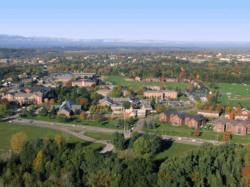
The COVID-19 pandemic underscored the indispensable role of emergency responders in the healthcare system—and the pressing need to bolster that workforce. Since 2020, shortages of healthcare workers, including first responders, have become especially acute. A 2024 study by Mercer projected that the U.S. will see a total deficit of 100,000 critical healthcare workers by 2028 […]
Read More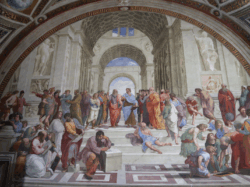
Years ago, at an event attended by local political and business leaders, a major real estate developer expressed shock and disbelief that I, a professor who is not a Marxist, worked in academia. He declared to me in front of everyone at the table that “real power is in business,” to which I replied that […]
Read More
Editor’s Note: The following is an excerpt from an article originally published on Heterodox Stem on July 6, 2025. With some edits to match Minding the Campus’s style guidelines, it is crossposted here with permission. The primary function of universities is to educate skilled labor. Within universities, skills are esteemed mainly by awarded degrees or titles and the […]
Read More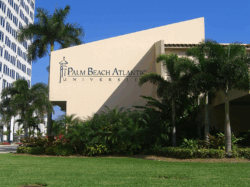
In the 21st century, what is the first thing that comes to mind when one thinks of the collegiate path to monetary success? STEM perhaps. Law. Maybe business. A young college student announcing one of these career paths at Thanksgiving dinner is bound to receive approving nods and complimentary remarks. But what about fields such […]
Read More
Author’s Note: This article is from my weekly “Top of Mind” email, sent to subscribers every week. For more content like this and to receive the full newsletter each week, enter your name and email under “SIGN UP FOR OUR WEEKLY NEWSLETTER, ‘TOP OF MIND,’” located on the right-hand side of the site. In 2011, the […]
Read More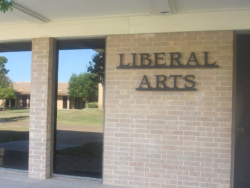
In his monumental work Culture and Anarchy, 19th-century poet and cultural critic Matthew Arnold laid out a novel curriculum that would revolutionize educational spaces in the coming century. Based on the Ancient Greek system of classical education, Arnold’s ambitious scheme envisioned the university as the center of cultural education—the cornerstone for understanding ourselves and the […]
Read More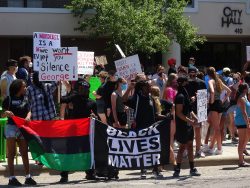
St. John’s College, the so-called Great Books school, has provided a sanctuary for liberal education since 1937. All students study the same prescribed assignments at the same time as their classmates. Except for a few classes in the final two years, there are no electives. The readings comprise many of the world’s most intellectually challenging […]
Read More
Two college associations are purporting to defend the liberal arts, the areas of study that undergird higher education in Western history and educate society about universal principles essential for a free person to know to participate in civic life. The American Association of University Professors (AAUP) and the Association of American Colleges and Universities (AAC&U) […]
Read More
America’s universities are collapsing into a miasma of postmodernism and multiculturalism. They have been approaching peak radicalization for several decades now, but in recent years the cultural left has pushed toward a complete takeover of our campuses. A hyper “political correctness”—with trigger warnings, safe spaces, micro-aggressions, censorship, and sometimes even physical violence—has enveloped our universities. […]
Read More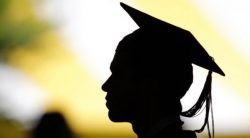
For the past two autumns the two leading academic reform organizations, the National Association of Scholars (NAS) and the American Council of Trustees and Alumni (ACTA), have held events offering high praise to the liberal arts as a means to improve students’ writing and to provide them with the classical culture that Mathew Arnold calls […]
Read More
“Full of years.” I am not sure I know of anyone who better qualified for that Biblical epithet than Jacques Barzun, who died last week at the magnificent age of 104. Born in France in 1907, Barzun had been a presence on the American intellectual and academic scene since the 1950s. From his perch at […]
Read More
The kids! The boys! They’re all donkeys! – Jiminy Cricket Beloit College recently released its annual “Mindset List,” the findings of a yearly survey which attempts to take stock of the cultural touchstones that each generation of college freshman is, or is not, familiar with. Most of the observations are benign: “They can’t picture […]
Read More
Why do students go to college? A new poll has a one-word answer: money. That’s one of the findings in a broad Gallup survey of college admissions officers done for Inside Higher Ed. The admissions officers seem to believe that those planning to attend college view it largely as a signaling device that directs the best […]
Read More
Speaking of business and management majors, Douglas Campbell and James E. Fletcher argue in A Better Way to Educate Professionals that their students “should have a strong base in the traditional liberal arts and the physical sciences….to effectively work with people to understand and solve problems as well as to accomplish individual, organizational, and social goals.” […]
Read More
Crossing the snow-covered Dartmouth green one night, I stopped, looked around, and asked, “Who owns this place, and by what right?” More than half a century later, I have still not resolved a complete answer to that question. But I can give you my short-form response: A small group of willful people, mostly money men […]
Read More
(The following is a transcript of a new podcast) JOHN LEO: I’m John Leo, Editor of Minding the Campus, and I’m here today with Professor Andrew Hacker, the well-known sociologist and public intellectual and author of many excellent reviews in New York Review of Books. He’s also the co-author, with Claudia Dreifus, of the recent […]
Read More
At research universities and many liberal arts colleges, too, it is universally assumed that research is an unadulterated good. Research keeps professors fresh in their fields, makes them better teachers, and raises intellectual standards for departments. Who would disagree? In conversations about research in my world of the humanities, though, one doesn’t often hear about one […]
Read More
Several years ago Harper’s Magazine ran two articles on “The Uses of Liberal Education.” One article, subtitled “As a weapon in the hands of the restless poor,” was written by Earl Shorris, and describes how poor and underprivileged members of our society were eager to study the great books and benefited from them. He devised a […]
Read More
Not far into an important book published recently is a table displaying results for one question on the North American Academic Study Survey, a poll of professors, administrators, and students administered in 1999. The survey is the basis for The Still Divided Academy by the late-Stanley Rothman, April Kelly-Roessner, and Matthew Roessner, which reviews the results and draws balanced conclusions. […]
Read More
Herb London and KC Johnson have already posted on the disappointing findings of the ACTA project What Will They Learn? But it is worth pondering some of the implications of the report. One of the more striking of them is the “Slightly less than 20% [of colleges surveyed] require U.S. government or history.” As KC […]
Read More
One of the frequent complaints one hears from humanities professors and figures in the “softer” social sciences is that students and a growing number of higher education officials, consultants, and commentators regard college more and more as a job-training program. While driving across the country this week, I heard Rush Limbaugh declare that the only […]
Read More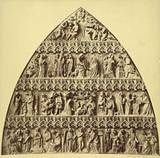
By Jonathan B. Imber Until 1969, on the campus where I teach, all students were required to take two semester s of Bible, which made the Department of Religion a central force in the life of the institution. When I arrived twelve years later, with no Bible requirement any longer in place, the only remnant […]
Read More
The Chronicle of Higher Education has published the results of
Read More
Here is a story from the Baton Rouge Advocate that confirms the decline of the humanities in the state system (although cuts struck deep into the sciences and education as well). Officials reviewed hundreds of programs in state colleges and universities, judging them by, among other things, the number of students they graduated each year. […]
Read More
In Savannah, Georgia, an ambitious experiment in higher education is under way. Ralston College aims to offer a back-to-basics liberal arts experience , stripped of the amenities and assumptions of the modern university. Though just now getting off the ground–it has yet to accept student applications–its stated mission is clear. Students will experience rigorous coursework […]
Read More
“But when humanism became the servant of the political or university establishment it lost its vitality and, indeed, its credibility… Willem Frijhoff discussing 16th century humanism in A History of the University, Vol. II (Cambridge U Press), p. 45 […]
Read More
“If I don’t succeed in academe, I’ll die!” So read the anguished headline of a Jan. 23 cri de coeur to Salon magazine’s advice columnist, Cary Tennis. The writer was a woman who had apparently spent eight years acquiring a Ph.D. in anthropology, plus another seven years trying unsuccessfully to get an entry-level tenure-track professor’s […]
Read More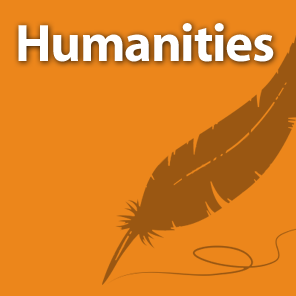
College foreign language and literature programs have been in decline for some time, first shrinking, then being consolidated with other departments, and now in a growing number of cases actually closed down. But the recent decision to eliminate French, Italian, Russian and Classics at SUNY Albany appears to have struck a nerve, and caused an […]
Read More
The news circulating among humanities professors across the country is the decision by SUNY-Albany to close programs in Classics, French, Italian, Russian, and Theatre. (Judaic Studies, too, has been virtually eliminated and journalism will be cut in half.) The general dismay is palpable, but faculty members should prepare for more of the same in the […]
Read More
Mark C. Taylor’s Crisis on Campus: A Bold Plan for Reforming Our Colleges and Universities (Knopf) is neither as bold nor as innovative as he would like us to believe. What purports “to begin a national conversation about transforming our institutions of higher learning” merely continues the postmodern assault on higher learning that began in […]
Read More